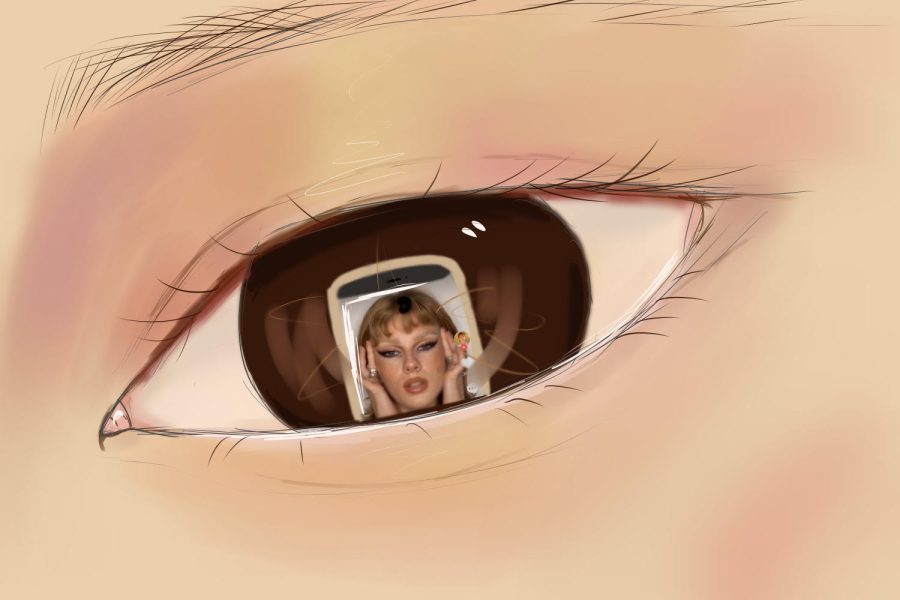Katy Perry, Zac Efron, Karlie Kloss, and Kim Kardashian; what do all of these celebrities have in common? The internet has accused them all of cultural appropriation.
The rise of technology over the past years has created an opportunity for people to hold others accountable for morally corrupt actions, one of the most common ones on social media being cultural appropriation. While it is partially due to the fast-paced environment of trends constantly circulating around the internet, it is mostly just the lack of respect from celebrities and influencers that cause these incidents.
It’s unfortunate that the world consists of people who don’t stop to think about how their lack of education on a certain matter can be harmful, even as full-grown adults. This can be seen through a number of America’s favorite celebrities and influencers.
One of the most well-known examples would be the Kardashians. People on the internet constantly call the Kardashians out for appropriating African culture. For context, the Kardashians are of Armenian, Dutch, English, and Scottish descent, yet have been seen on multiple occasions with traditional styles from Africa, such as cornrows.
Hairstyles such as cornrows have a history-rich origin, which dates back as far as 3000 B.C., though the name was not coined until some time later, according to the University of Bedfordshire.
“Cornrows helped enslaved Africans put up small acts of rebellion and resistance by not only allowing them to keep their heritage close but also providing a discreet way to transfer information,” said Tabitha Ajao, an executive officer from the University of Bedfordshire. “A particular number of braids could indicate possible escape routes or even be used to signal a meet-up time, without drawing scrutiny.”
With that in mind, it is ignorant for a person who is not a part of this heritage or knowledgeable of its historical significance to take advantage of it for the purpose of fame.
Cultural appropriation can also take form in more subtle ways. This can be seen through the problematic, and often overlooked, “fox eye” beauty trend.
For many years the Asian community has been criticized for their eyes, and monolids have been stigmatized to a point where double-eyelid surgery and tape have been normalized in order for people to fit into the Western beauty standard. Apparently, now all that energy spent trying to fit in with American society can be put to rest, because the internet has started a new trend, where slanted eyes have suddenly been deemed beautiful.
“Fox eye” makeup uses eyeliner to create the illusion of a more elongated and slimmer eye shape, even taking it a step further and drawing on the inner corner to make it seem more pointy. The joke is on them though, because, in reality, many Asian people are born with an epicanthic fold, an extra part of the inner eyelid, making it nearly impossible to put eyeliner there.
The problematic part is less about the makeup style and more about the pose that comes along with it. To show off the accentuated eyeliner, influencers and celebrities have been seen placing their fingertips on the outside of their eyes, a position that seems suspiciously close to the one used to ridicule Asian people with racist intent.
“You can’t be surprised that someone’s going to be offended by you exaggerating a feature on your face that mimics something that they’ve been made fun of or discriminated against for,” said Marc Reagan, an Asian-American makeup artist during an interview with CNN. “So we are [living] in a really sensitive time and those types of things need to be taken [into consideration] every single day.”
While most of these situations have been viewed as ignorant, and a way for celebrities to exploit others’ lifestyles for a few photos, there have also been a few examples of cultural appreciation rather than appropriation.
Shakira is a globally known singer, and one of her most popular songs, “Waka Waka (This Time for Africa),” has been deemed the proper way to portray culture through the media. The song and music video were used for the 2010 FIFA World Cup, held in South Africa. Many have praised her genuine appreciation for traditional African dances and phrases used in the song.
In this sense, the difference between appreciating a culture versus exploiting it seems pretty obvious. However, this line has become blurred due to the rise of social media and differing opinions.
In 2013, during the MTV Movie Awards, Selena Gomez performed her hit song “Come & Get it,” while wearing a bindi and dancing to traditional Indian music. Even today, people are still arguing on social media over whether or not she had the right to perform this or not.
Some debate if it was necessary for her to use Indian styles for entertainment purposes, while others side with the singer, appreciating the effort taken to learn the dance in the first place.
Unlike many celebrities in the past, Gomez has never issued a statement of apology. In fact, during an interview with Elvis Duran, she responded to the controversy.
“I think the song has that Hindu, tribal feel and I wanted to translate that,” Gomez said. “I’ve been learning about my chakra and bindis and the culture … It’s beautiful.”
People absolutely carry the right to expose others who use their culture’s traditions without knowing the historical significance of it.
Some may think using the media to spread new trends consisting of traditional clothing or styles is a good thing because people are sharing culturally diverse styles and normalizing them. In some cases that’s true, but it has become a problem because the media is typically used to promote celebrities and to profit off historically-rich traditions that get minimized to passing trends. They are exploiting others’ heritage for attention on social media, whether it be positive or negative attention.
Although it has since cooled down since everybody was regularly on their phones during quarantine, no celebrities are safe from the so-called “cancel culture.” While every person should be held accountable for their hurtful actions, it is especially important to call out those with a far-reaching platform.
The beneficial part about the media is that it’s an extreme form of privilege to be put in a position of power where someone has the opportunity to influence people. That privilege and platform should not be used to take advantage of others’ cultures, but rather to respect and raise awareness of them.












